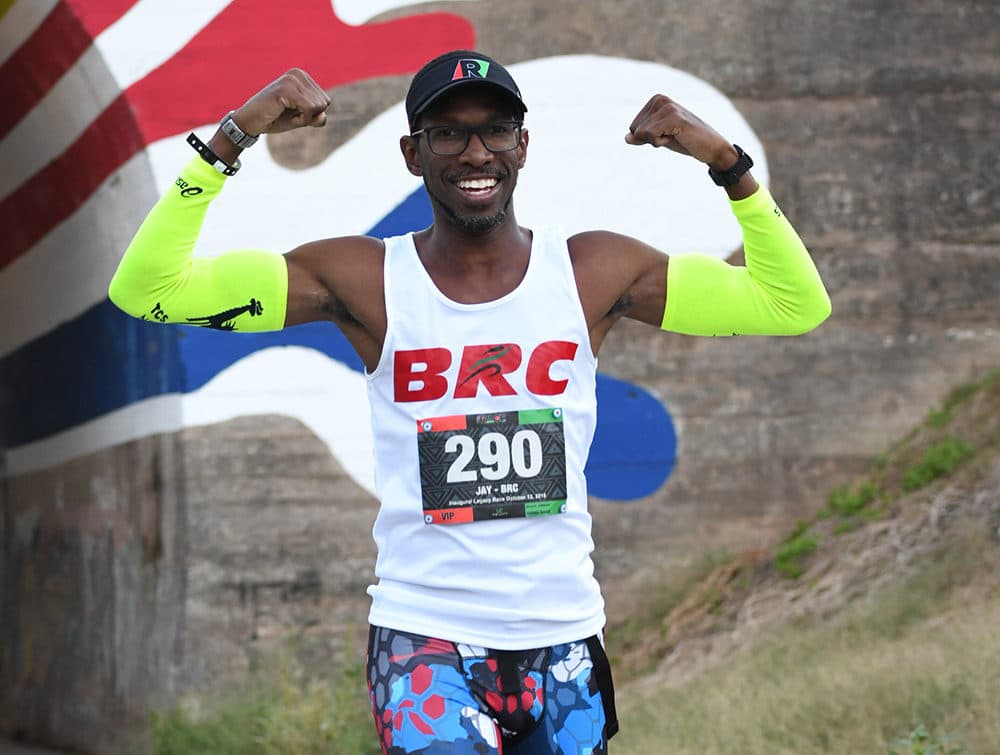Advertisement
Running While Black: Ahmaud Arbery's Death Highlights Shared Fears Of Racial Profiling
Resume
Last week, two men were charged with the murder of Ahmaud Arbery, who was shot and killed in February while on a run in his hometown of Brunswick, Georgia. He was unarmed at the time.
Arbery's death has united runners across the country who took to the streets for virtual runs on what would have been Arbery’s 26th birthday last Friday. Taking selfies and posting messages on social media using the #IRunWithMaud, runners and activists alike used the moment to protest Arbery's death.
His killing is also prompting black runners to reflect on fears of being attacked or racially profiled while running.
James Ravenell II is one of those runners. Co-founder of Black Runners Connection, Ravenell says the run for Arbery last Friday was “painful.”
“It's a big deal for African American men to make it to age 25, and it's kind of like, 'Wow, I finally made it,' ” he says. “And then for him to be struck down that way, it's sad. It's angering. And it's really exhausting that this keeps happening to us.”
Ravenell, who has been running for six years, says he has to make constant adjustments when going for a run as a black man. Sometimes he says he will even run in the street or cross to the other side “to avoid even making anyone feel uncomfortable by my presence.”
“I know, unfortunately, that my blackness represents a threat to many people, so … sometimes as runners, we may come up on someone very quickly, but we don't have the benefit of people thinking that we're just doing a normal thing. Sometimes I will make noise to let someone know that I'm coming,” Ravenell says. “I can't really remember a time where I was not thinking about myself as a potential threat in the minds of other people.”
For many, the act of running transcends exercise. Ravenell says running is his “meditation,” but especially since Arbery’s murder, “it feels like we can't even do that.”
“We are all exhausted. We just want to live. We're not thinking about doing anything to anyone,” he says. “Our blackness, it's not a threat to anyone, but here we are again and again and again.”
Among the spate of recent shootings of unarmed black men, Ravenell says Arbery’s death feels particularly personal for him. He says this has inspired him, along with Black Runners Connection, to mobilize people to create tangible change for black Americans.
“We should not have to live in fear and we won't,” he says. “We're not going to tuck our tails and run because people cannot find a rationale on their side to not be afraid of us for nothing.”
Cristina Kim produced and edited this interview for broadcast with Tinku Ray. Samantha Raphelson adapted it for the web.
This segment aired on May 11, 2020.

